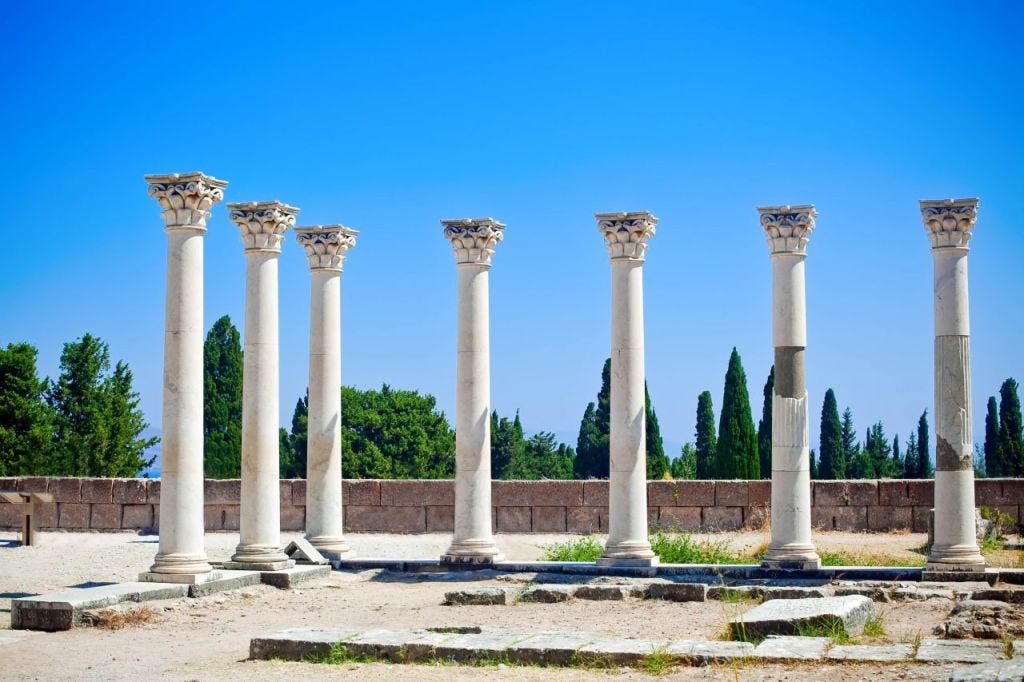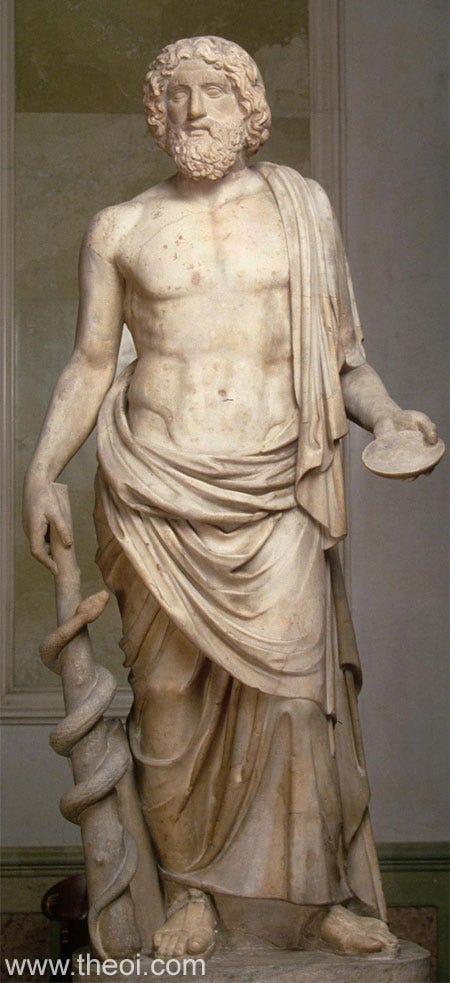Ancient Greek Medical Theory is Similar to Emerging Medical Theory on the Endocannabinoid System
Originally published Dec 26, 2020
The word "medicine" is a Greek word based on the same root word as “medium.” In the sense of disease, it is the proper middle ground in a range of necessary plant compounds in our body required to properly maintain our body's systems. In other words, "medicine" meant “balance.” Thus, the original definition of medicine is to create balance in the body by the use of herbs.
The ancient philosophy and practice of Greek medicine, balancing the body's systems with herbs, even the word "medicine" itself, eerily mirrors the most advanced medical knowledge that man is acquiring today as researchers learn about the Endocannabinoid System.
Many consider Hippocrates (460-377 BC) to be the father of Greek Medicine. He is of course the namesake of the “Hippocratic Oath.” The Oath was written after Hippocrates' time. Yellow Emperor: ..the Hippocratic Oath is not by Hippocrates himself, but is from after his death, written by physicians influenced by the Hippocratic Corpus. The Hippocratic Corpus is a collection of 60 texts which includes writings by some of his students.
Hippocrates was born on the island of Kos. On Kos, there was a temple where the Greeks practiced herbal medicine. The Asclepion was a temple dedicated to the Greek God of healing, Asclepius. There were many temples dedicated to Asclepius in addition to the one at Kos.
Here Hippocrates studied and later practiced herbal medicine. Hippocrates felt like there were four "humours" in the body, which he balanced with herbs. Greece Is: Hippocrates used approximately 250 of Kos’s plants to treat ailments and diseases, many of which still grow on the island.
Asclepius, the Greek God of Medicine, was probably a real person. Homer likely described him as a human by the name Paeëon. Theoi: AESCULA′PIUS (Asklêpios), the god of the medical art. In the Homeric poems Aesculapius does not appear to be considered as a divinity, but merely as a human being, which is indicated by the adjective amumôn, which is never given to a god. No allusion is made to his descent, and he is merely mentioned as the iêtêr amumôn, and the father of Machaon and Podaleirius. (Il. ii. 731, iv. 194, xi. 518.) From the fact that Homer (Od. iv. 232) calls all those who practise the healing art descendants of Paeëon, and that Podaleirius and Machaon are called the sons of Aesculapius, it has been inferred, that Aesculapius and Paeëon are the same being, and consequently a divinity.
Upenn. Opinions vary on when Homer wrote his Iliad and Odyssey, or even if he wrote it all himself, but 750 B.C. seems a common date given to the era. This means that Asclepius was probably a real person who dates back to at least 750 B.C. A few centuries later, Paeëon, or Ascelpius, was a God.
The Rod of Asclepius is a symbol of Medicine known the world over.
According to mythology, a snake brought the knowledge of herbs to Asclepius. My take is that the snake symbolically represents Chinese herbal knowledge, as I believe the herb brought to Asclepius was Chinese Ginseng. The tale of Asclepius may be the tale of Chinese herbal knowledge coming to Europe. Although all cultures would have used herbs to survive in these ancient times, this tale appears to be a transfer of knowledge from Asian to European culture.
In mythology, Asclepius accidentally killed a snake with his rod. Another snake came to the aid of the snake with an herb that brought the snake back to life. Asclepius then used the herb to bring humans back to life. He was later commanded to bring a man, Glaucus, back to life. In the effort of doing so, Zeus killed Asclepius with a thunderbolt. Apparently Zeus was angry that Ascleplius would dare to bring his enemies back to life. The Gods were also concerned that man might escape his mortality and break the barrier between God and man. And Zeus' brother, Hades, was upset that he wasn't getting as many people as usual.
In any case the legend clearly revolves around an herb that could "bring man back to life." It seems to me that this herb was likely Ginseng. Ginseng has long been known to revitalize men. For instance, one account of Ginseng, by Smithsonian Magazine: In 1713, Pierre Jartoux, a Jesuit missionary in China, wrote in a letter that after eating ginseng, “I found my Pulse much fuller and quicker, I had an Appetite, and found myself much more vigorous.” Four days later, so tired he could hardly stay in his saddle, he chewed some more. After an hour, he reported feeling like a new man.
It's hard to say exactly what the medicinal properties of Ginseng are. The FDA in the United States has not approved Ginseng for any medical use. In holistic medical theory, an herb can affect different people in different ways. Your system will be more in or out of balance in certain areas than mine will. If say, an herb like Ginseng were to help balance both our systems, the benefits would show up in different ways. The FDA's system of testing specific compounds against specific symptoms of disease is at odds with holistic medical theory.
Carl Linnaeus, the father of Taxonomy, named the Genus of Ginseng as Panax. Panax in Greek literally means "a cure of all." Wiktionary: From Ancient Greek πᾶν (pân, “all”) + ἄκος (ákos, “cure”). Used for ginseng by Linnaeus owing to its pervasive use in traditional Chinese medicine.
Although the herb brought to the Greeks may or may not have been Ginseng, it is interesting that the "cure all" of the Old World, both East and West, has become the cure of nothing in the New World under the FDA. I believe it is time for a Renaissance of true Medicine, herbal medicine and holistic theory.
Charles Wright









Oh, gr8 read....
The word "Panax/ ΠΑΝ-ΑΞ" + "PAN-ACEA /ΠΑΝ-ΑΚΕΙΑ!"
The Greeks still use a lot of (medicinal) herbs in their diet::ie the island of Ikaria in Greece, where the veggies + teas are filled with Mg, due to the LOCAL granite enriching soil...
Even today, tons of apothecaries exist w many varieties 9f "herbal" treatments + prebiotic noodles called "Trahanas/ ΤΡΑΧΑΝΑΣ..."